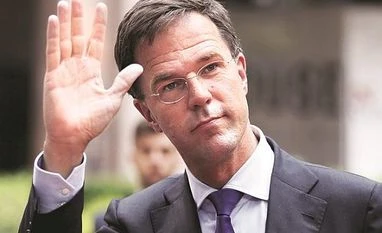As the caretaker government of Prime Minister Mark Rutte prepares to unveil its 2018 budget on Tuesday, the country is growing at its fastest clip in a decade.
With a new government yet to be formed more than 185 days after the Dutch general elections in March — the second-longest such period since World War II — many see the strong performance as an indication that systems put in place after Europe’s debt crisis in 2008 are helping shelter the country from the vagaries of international events and political uncertainty at home.
“Does it matter a lot that we have a caretaker government? No, honestly, it doesn’t,” said ING Groep NV Chief Economist Marieke Blom. “For now, the economy is in good shape. Although there are things that can be improved, I don’t really believe they’re very urgent.”
Trade concerns after the election of Donald Trump in the US, the Brexit vote in the UK and uncertainty over the vote in France barely made a dent on the Dutch economy, which expanded 1.5 per cent in the second quarter compared with the three previous months, beating economist estimates. ING, ABN Amro Group NV and Rabobank UA have all raised their growth forecasts for the year, expecting an expansion of more than three per cent.
If the three largest Dutch banks are right, economic growth in the Netherlands this year would be higher than in France, Italy, Spain, Germany and the euro-area as a whole, according to forecasts collected by Bloomberg.
So while its politicians struggle to find common ground, the Netherlands’s economic machine is chugging along. Raising the pension age and trimming health care benefits have helped put the Netherlands ahead of other European Union countries in terms of age-proofing the economy. While the country needs to further reform its tax system, “it’s a longer-term thing”, Blom said.
Also, the stress put on the system by the financial crisis has eased, said Hans Schenk, a professor of economics at Utrecht University.
“Financial institutions have recovered, an important signal to other companies that they can sufficiently trust the economy to boost investments,” he said.
The Dutch state, which nationalised financial firms during the crisis, this month cut its stake in ABN Amro and sold its holding in insurer ASR Nederland NV.
The engines of the Dutch economy, industries including technology and health sciences with such companies as Royal Philips NV, NXP Semiconductors NV and Royal DSM NV, have thrived. Over the summer, Philips announced a series of acquisitions, including the $1.7-billion purchase of Spectranetics Corp, its third-biggest takeover in the health sector.
Chip-machine maker ASML Holding NV sees a 25 per cent revenue growth this year, while vitamin maker DSM posted its highest quarterly profit in nine years. NXP is being bought by Qualcomm Inc in what would be the largest deal in the chip industry.
Things have been less stellar on the political front. While the rise of Geert Wilders had cast a shadow over the Netherlands — and the rest of Europe — ahead of the March election, with the populist leader now excluded from any potential cabinet discussions, the Dutch are largely shrugging off the twists and turns of coalition politics.
To read the full story, Subscribe Now at just Rs 249 a month
Already a subscriber? Log in
Subscribe To BS Premium
₹249
Renews automatically
₹1699₹1999
Opt for auto renewal and save Rs. 300 Renews automatically
₹1999
What you get on BS Premium?
-
Unlock 30+ premium stories daily hand-picked by our editors, across devices on browser and app.
-
Pick your 5 favourite companies, get a daily email with all news updates on them.
Full access to our intuitive epaper - clip, save, share articles from any device; newspaper archives from 2006.
Preferential invites to Business Standard events.
Curated newsletters on markets, personal finance, policy & politics, start-ups, technology, and more.
Need More Information - write to us at assist@bsmail.in
)